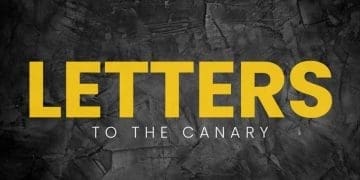The Royal Society for the Protection of Birds (RSPB) recently came out fast and furious against the government, describing members of its frontbench as “liars”. It was a surprising move for a usually publicly reserved organisation. However, it quickly retracted the statement – and some suspect the meddling of Tufton Street.
RSPB comes out swinging… for a moment
On 30 August, the RSPB took to social media to call prime minister Rishi Sunak, levelling up secretary Michael Gove, and environment secretary Therese Coffey “liars!”:
LIARS!@RishiSunak @michaelgove @theresecoffey you said you wouldn’t weaken environmental protections.
And yet that’s just what you are doing.
You lie, and you lie, and you lie again.
And we’ve had enough. 🧵 pic.twitter.com/ZHlRmd5po3
— RSPB England 🌍 (@RSPBEngland) August 30, 2023
The statement came after the government U-turned on a pledge to protect nutrient neutrality. This EU-derived pledge meant housing developers must meet specific ecological standards for approval of their plans. Gove’s levelling up department said it would “boost” the UK economy.
However, environmental groups across the board were critical of the move. Doug Parr, policy director for Greenpeace UK, told the Independent that it signalled the government had “given up” on reducing sewage pollution into the country’s rivers. Meanwhile Craig Bennett, head of the Wildlife Trusts, told BBC News that it showed housebuilders had “yet again” dodged environmental accountability.
However, it was the RSPB that came out most angrily against the government, saying that it was now “patently clear” the government doesn’t care about nature:
And all the while you have pretended to be a Government that cares about nature.
It’s now very patently clear that you do not.
— RSPB England 🌍 (@RSPBEngland) August 30, 2023
The rest of its Twitter thread highlighted how the nutrient neutrality U-turn broke a long series of pledges made by the Sunak government.
People replied with praise for the RSPB’s stance. Some were even surprised at the statement – not because of how true it is, but because it came from the normally timid RSPB:
Wow well done RSPB 👏
Anyone else feeling like our charities are getting BOLD? Please keep going!! https://t.co/Lhaym03mAk— Dr Julia Grace Patterson💙 (@JujuliaGrace) August 31, 2023
Well done! My congratulations. 👏👏👏
Appears there is now at least one of the eNOGs prepared finally to take a stand, long overdue but very, very welcome.
Question becomes who's next and as a sector do they have the leadership to see this through and win it? https://t.co/bFUbMmeB7U
— Feargal Sharkey (@Feargal_Sharkey) August 30, 2023
Wow!
Those headbanging, crazy, dangerous EXTREMISTS at @RSPBEngland are the latest to say to this lying government, “You lie, and you lie, and you lie again”
Very true https://t.co/4uAixOgwDH
— Tom London (@TomLondon6) August 30, 2023
Just hours later, though, the RSPB issued a public climb-down.
Tufton Street?
Later that day, the RSPB put out another tweet apologising for its thread calling the government liars. It said that “frustration” had led it to attack Sunak, Gove, and Coffey, rather than “policy”:
This falls below the standard we set ourselves and for that we apologise.
We will continue to campaign vigorously on behalf of nature but we will always do so in a polite and considered manner.
— RSPB England 🌍 (@RSPBEngland) August 30, 2023
This climb down was marked by two things, however. Firstly, the RSPB hasn’t deleted the original thread attacking the government’s U-turn. Secondly, the speed with which it came was notable. This second point led to speculation about why the charity issued its apology.
Many were quick to point at Ben Caldecott, an RSPB trustee with links to the Policy Exchange and other Tufton Street ‘thinktanks’:
Wondering why the RSPB is this evening rowing back on calling the Tory liars liars?
Meet Dr Ben Caldecott RSPB Trustee & former Research Director at the right wing Tufton Street Policy Exchange.
They get EVERYWHERE. pic.twitter.com/s6obnFQwIk
— Gyll King Post Skip Diplomacy (@GyllKing) August 30, 2023
Ben Caldecott was Research Director at Policy Exchange, the dark money junktank that has done more than any other to trash environmental policy in the UK. Now he's a trustee of the RSPB. That's the problem, not the RSPB correctly calling out the lies of government ministers. https://t.co/LBqkZFkWQR
— George Monbiot (@GeorgeMonbiot) August 31, 2023
Dr. Ben Caldecott, a trustee of RSPB, was a pivotal force compelling their apology.
Simultaneously, he holds significant influence at Tufton Street and is deeply entwined with numerous 'think tanks.' Additionally, he's entrenched with wealth management organizations globally.… pic.twitter.com/HuyxJ5hDfP
— Waterways Protection 💙 #EndSewagePollution (@WaterWaysProtct) September 1, 2023
‘Reverse ferret’
Caldecott had earlier criticised the RSPB’s “liars” statement, saying that it was “not an appropriate contribution to our public discourse”. Meanwhile, Tory MP Mark Jenkinson had publicly called for the Charity Commission to strip the RSPB of its charitable status as a result of its attack on the government.
This led some to speculate that Tufton Street had leaned on the charity following its criticism. Climate website DeSmog described 55 Tufton Street as:
a small but influential network of libertarian, pro-Brexit thinktanks and lobby groups, including the UK‘s principal climate science denial group, the Global Warming Policy Foundation.
Caldecott remains a senior fellow at Policy Exchange – of which Gove is a long-running supporter. Conservationist Miles King explicitly called out these links, describing the RSPB’s move as a “reverse ferret“: “a sudden reversal in an organization’s editorial or political line on a certain issue”. At the time of publishing, there’s no public evidence of these claims.
The RSPB is a genteel yet widely supported charity. The fact that even it had taken a public stance against the MPs behind climate-wrecking environmental policies shows just how far down the climate-breaking rabbit hole we really are now.
Featured image via Policy Exchange/Wikimedia Commons









